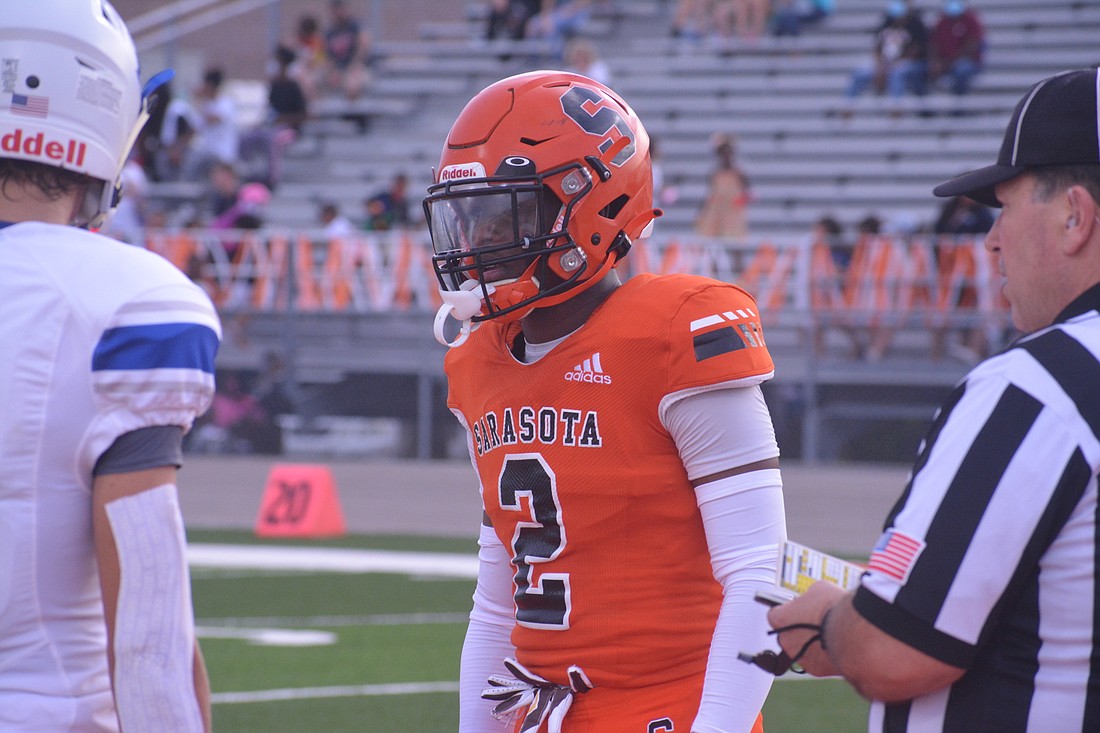- July 5, 2025
-
-
Loading

Loading

Big changes are coming to high school football in Florida.
The Florida High School Athletic Association voted on Monday in favor of a proposal to change the sport's classification system. Instead of basing the classes mainly on size, the classes will now initially be split into two umbrellas: Metro and Suburban. The Metro classes — four of them — will consist of teams from the eight most densely populated counties in the state: Broward, Duval, Hillsborough, Miami-Dade, Orange, Palm Beach, Pinellas and Seminole. Those counties contain 228 of the FHSAA's 495 schools.
The majority of schools in the remaining counties will make up four Suburban classes. This is where Sarasota-area schools will land. There will also be one Rural classification containing a handful of schools with 600 or less students location in areas designated rural by the FHSAA.
One broken down into each umbrella, the classes will be sorted by enrollment. The change will go into effect this fall.
Why make the change? Well, according to the FHSAA's board of directors, which passed the measure 9-7, it's mainly being done for competition reasons. Over the last decade, 89% of state championships have gone to schools from counties now classified as Metro. Removing these teams and giving them their own classifications opens up championship opportunities for Suburban teams. In some ways, it is the closest Florida will ever get to having a public school umbrella and a private school umbrella: separating them that way goes against state statutes, but there sure are far more private school powerhouses in the Metro areas than the Suburban ones, with a few exceptions.
On one hand, I understand why the FHSAA decided to go this route. When Metro teams win titles at such a high percentage, there isn’t much incentive for fans of teams outside those counties to care about high school football in Florida, at least not outside of local rivalries. Sports are always more fun when there are a variety of winners (unless you root for a consistent winner, I suppose). The new proposal alleviates some of the competition concerns of the old system and ensures that teams outside of the most populated areas have a chance at postseason success.
On the other hand, the point of sports is not only to win. It is to test yourself against people equal (or better) in skill than you, learning things about resilience and willpower along the way. If you take all the Metro teams out of the Suburban playoff paths, is that really playing against the best? Or is the FHSAA handing teams an easier road in lieu of forcing them to learn those lessons?
That last part doesn’t necessarily apply to all our area teams, at least in the regular season. The exact classifications for next season have yet to be determined but it is a good bet that Riverview High and Sarasota High will be in the highest Suburban class. So will Venice High, the defending Class 8A champion. Venice is as tough as any Metro champion and both Riverview coach Josh Smithers and Sarasota coach Brody Wiseman pledged to schedule as many area powerhouses outside of their districts as they can. They’ll be playing as tough a schedule as ever because, well, that's how they like it.
But the postseason path to a title, once past our area teams, will look different.
"It's going to be a big departure in the playoffs," Wiseman said. "It's a little disappointing. I think Venice winning it all this year was the first time someone from our area won it without having to go through one of the big (Metro-area) teams like St. Thomas Aquinas. Now, if we won a championship here (under the new system) and people said there was an asterisk on it, I wouldn't care. But there might be a little less weight to it because of it."
But what about a team like Cardinal Mooney? In 2021, the Cougars had six teams in their district who will now be moved to a Metro class. Mooney did not play all of those teams in 2021, but will no longer have to worry about fighting for playoff spots with those teams (or playing them once there). Thus, the Cougars will likely have an easier road in 2022 — unless, with so many giant Metro schools leaving the top classes, Mooney gets a bump into a bigger Suburban classification than they normally would be in.
Until the classifications are released and we see the system play out in real time, a lot of unknowns remain. Those unknowns are part of the reason the FHSAA vote was so close. Outside of the state title argument, there isn't much data to support the plan's supposed equality. Even less is in the way of Venice running the table every year now, after all — and Venice head Coach John Peacock is himself upset about the change.
"So bad by (the) FHSAA," Peacock tweeted on Monday after the vote. "Great for average teams and coaches, not great for teams looking to be great."
Peacock then tweeted Wednesday morning that the program would petition to move to a Metro class. I'm not sure that plea will be successful, but I understand his perspective. The new system does seem designed to give middling Suburban schools the biggest benefit while other teams are either loaded into much tougher classes — like any previously average-to-good Metro program now expected to compete exclusively with the big boys — or, like Venice, have had some of their relished challenges taken away.
I'm taking a wait-and-see approach myself. The FHSAA said there will likely be tweaks made along the way, after all. And now that it's March, there's only two-ish months until spring football begins. There's no reason to get riled up when a great thing is around the corner.